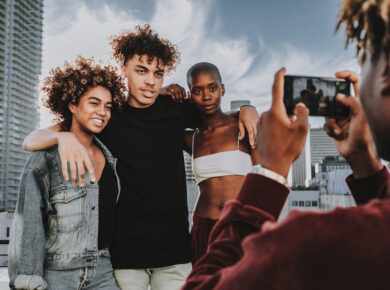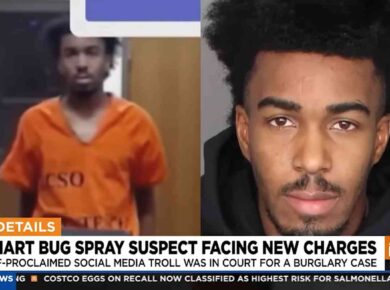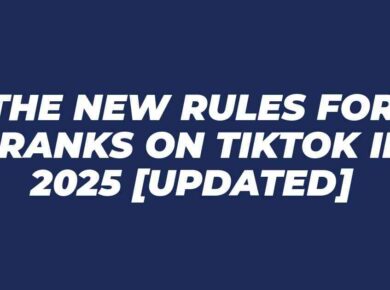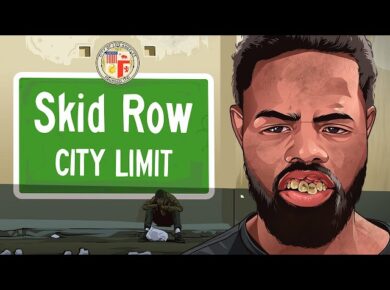Artificial Intelligence is reshaping how brands measure success in influencer campaigns. By 2025, expect smarter tools that predict outcomes through data-driven insights, more precise influencer matches, and real-time campaign tracking. These technologies promise to save time, boost ROI, and optimize strategies with unmatched precision. As brands balance AI insights with human creativity, influencer marketing will move into a more efficient and personalized era.
The Evolution of Influencer Marketing with AI
Artificial Intelligence has redefined the influencer marketing industry. By making data analysis faster, improving audience targeting, and streamlining the entire process, AI is fueling a smarter, more personalized approach. To truly appreciate its impact, let’s break down major milestones, discuss predictive capabilities, and explore the balance between automation and creativity.
Key Milestones in AI and Influencer Marketing
The merger of AI and influencer marketing has been a game-changer in several ways. Here are some of the pivotal moments that highlight its evolution:
- Rise of AI-Driven Analytics: Platforms like Influencity began enabling brands to make informed decisions by analyzing influencer performance metrics in real-time.
- AI-Powered Social Listening: Tools such as Sprinklr enabled marketers to track and understand social conversations, making influencer selections more precise.
- Introduction of Virtual Influencers: The launch of AI-created characters like Lil Miquela blurred the lines between reality and technology in marketing campaigns.
- Predictive Algorithms: AI algorithms started predicting engagement rates and campaign success, transforming guesswork into measurable insights. Check out this article about AI marketing developments for more details on how these technologies are evolving.
These advancements revolutionized how brands operate, offering a level of precision that was unattainable before.
Role of AI in Predictive Analytics
Predictive analytics powered by AI is the backbone of successful influencer campaigns. It uses historical data to foresee outcomes, helping brands maximize efficiency. Here’s how AI steps in:
- Audience Insights: AI tools analyze demographics, interests, and purchasing behaviors to ensure campaigns reach the right viewers.
- Influencer Identification: AI selects influencers whose values align with the brand, minimizing risks of audience mismatch. Resources like this guide delve deeper into how AI simplifies influencer selection.
- Real-Time Adjustments: During campaigns, AI tracks performance and adapts strategies as needed, optimizing spend and outcomes.
By integrating AI-driven prediction models, businesses now focus less on trial and error and more on delivering results.
Automation vs. Creativity: Striking the Right Balance
AI excels at tasks like data crunching and process automation, which are vital but not sufficient alone. Successful campaigns also need a touch of human creativity to craft compelling content that resonates with audiences. Striking a balance between these elements is key:
- Automation Benefits: Tasks like influencer vetting, hashtag optimization, and ROI tracking are streamlined, saving time and effort.
- Creativity’s Role: While AI provides insights, only humans can frame content that feels genuine and emotionally connects with readers.
For instance, even as AI identifies trends, the storytelling aspect still requires human intervention. As explained in this blog, brands must harness AI for efficiency but rely on human touch for relatability.
In short, automation removes the logistical hurdles, empowering creatives to focus on storytelling, design, and authenticity. Together, AI and human insight form a powerhouse driving profitability and engagement.
AI Tools and Platforms Revolutionizing Influencer Campaigns
Advancements in Artificial Intelligence (AI) have fundamentally shifted how influencer campaigns are planned, executed, and analyzed. New AI platforms are simplifying complex tasks like forecasting campaign success, recommending influencers, and personalizing strategies. As we approach 2025, it’s worth exploring the tools and features that are making this transformation possible, as well as how marketers can seamlessly integrate them into existing workflows.
Popular AI Platforms for Campaign Predictions
Brands today rely on sophisticated AI platforms to predict campaign outcomes with incredible accuracy. Some industry leaders have emerged as preferred solutions due to their cutting-edge functionalities:
- HypeAuditor: Renowned for its fraud detection and analytics, HypeAuditor helps brands identify authentic influencers while ensuring they align with campaign goals.
- Traackr: Offering a comprehensive influencer relationship management system, Traackr enables brands to track campaign performance and measure ROI effortlessly.
- Influencity: Frequently used for its robust audience segmentation tools, Influencity enhances influencer selection for targeted campaigns.
Other noteworthy mentions include newer platforms like Insightpool and Clear, designed to forecast engagement rates and maximize campaign results. For a closer look at other AI tools reshaping influencer marketing, this article on AI’s influence in marketing dives deeper into emerging trends.
Advanced Features of Predictive Tools
Modern AI tools integrate advanced features that move beyond basic analytics, providing actionable insights for marketers. Here are some core functionalities:
- Sentiment Analysis: This feature evaluates audience sentiment, helping brands gauge how well campaign messages resonate with their target audience.
- Predictive Modeling: By analyzing historical data, AI tools forecast key performance indicators (KPIs) like engagement, reach, and conversions.
- ROI Projections: Tools like Traackr and HypeAuditor offer projections on return on investment (ROI), enabling marketers to allocate budgets effectively.
These capabilities empower marketing teams to go beyond intuition, using data-backed strategies to minimize risks and optimize results. If you’re curious about top tools used for micro-influencer campaigns, this detailed breakdown outlines the most innovative options available.
Integration of AI Tools into Existing Campaigns
Adopting AI technology doesn’t have to disrupt your current influencer marketing strategies. On the contrary, integrating these tools can be done smoothly with a few straightforward steps:
- Start Small: Begin by using AI for a single campaign aspect, like influencer vetting or performance tracking, to evaluate results without overhauling your entire strategy.
- Collaborate with Stakeholders: Work closely with your marketing team to ensure everyone understands the tool’s features and benefits.
- Pair AI with Traditional Strategies: While AI is powerful, it works best alongside creative campaigns driven by human creativity.
For brands already exploring AI, tools such as HypeAuditor’s marketplace integrations help streamline adoption, making the transition seamless. Additionally, other platforms like these AI influencers marketing tools provide comprehensive solutions for campaign management and strategy execution.
By leveraging these advancements, marketers have the opportunity to hone their tactics, focus on creative storytelling, and ensure campaigns deliver measurable success. Whether you’re an established brand or just stepping into influencer marketing, AI-powered tools are a game-changer for achieving your goals.
Benefits of AI-Driven Analytics for Influencer Campaigns
As influencer marketing continues to grow, incorporating artificial intelligence (AI) into analytics has become a game-changer. AI-driven tools help brands manage, track, and optimize their campaigns with unprecedented precision. Here, we’ll explore the key benefits AI brings to influencer campaigns.
Improved ROI and Performance Metrics
One of the most significant advantages of AI analytics is the ability to enhance return on investment (ROI) for influencer campaigns. These tools track campaign performance in real-time, identifying which strategies work best while pinpointing inefficiencies. This endless data stream allows marketers to shift their budgets effectively and maximize outcomes.
For example, AI can automatically analyze key performance indicators (KPIs) such as engagement rates, conversions, and audience reach. Imagine not just knowing your campaign worked, but understanding why and how every piece contributes to success. Tools like predictive algorithms even suggest changes mid-campaign for better results. Brands can now focus efforts and funding on what matters most without relying on trial and error.
If you’re interested in learning how AI makes campaign tracking seamless, check out Sprout Social’s insights on AI influencer marketing.
Data-Driven Decision Making
AI tools empower marketers to make smarter decisions based on deeper data insights. By analyzing vast amounts of information quickly, AI uncovers patterns in consumer behavior, helping brands align campaigns with audience preferences.
Wouldn’t it be amazing to know exactly what your audience loves before launching a campaign? AI makes that possible by analyzing factors including:
- Age, gender, and location
- Social media habits
- Preferred content types
- Purchasing behavior and trends
By leveraging this consumer profile data, brands can craft tailored messages that strike a chord with their target community. This level of precision ensures every dollar spent is hitting the right mark.
For a closer look into how AI is used for smarter decision-making, check out this in-depth article from Influencer Marketing Hub.
Increased Personalization and Targeting Accuracy
In today’s crowded digital space, personalization has become the key to standing out. AI helps pinpoint specific audience segments, enabling influencer campaigns to reach the right people with highly tailored content.
AI tools use behavioral data to customize messaging, ensuring campaigns cater specifically to different audience preferences. This results in higher engagement rates and stronger connections between brands and customers. It’s like having a roadmap to your audience’s heart.
For instance, an AI tool might identify a preference for video tutorials over blog posts in one segment, prompting a shift in campaign content accordingly. This hyper-targeted approach transforms the generic into the personal, which resonates more deeply with viewers.
Discover more about how AI improves targeting by checking out this article on AI-powered analytics.
By embracing AI-driven analytics, influencer campaigns become more efficient, personalized, and impactful than ever before. Whether improving ROI, enabling data-backed strategies, or increasing personalization, these benefits pave the way towards more successful campaigns in 2025 and beyond.
Addressing Challenges and Ethical Considerations
As the use of AI in influencer marketing continues to grow, it’s equally important to address potential challenges and ethical considerations. AI-driven tools may streamline processes and boost results, but they also come with responsibilities that brands cannot overlook.
Data Privacy and Security Concerns
Using AI tools means handling massive amounts of data. From personal information about influencers to audience metrics, the scope of data processing is vast. Maintaining compliance with data protection regulations like GDPR and CCPA isn’t optional—it’s critical. Failing to secure data can lead to severe fines, not to mention a loss of trust from your audience.
How can brands ensure data privacy?
- Use platforms with built-in privacy safeguards.
- Regularly audit your systems to patch vulnerabilities.
- Restrict data access to a need-to-know basis within your team.
Emphasizing transparent data handling not only builds credibility but also fosters confidence among influencers and audiences alike. For more insights into privacy-compliant tools, check out this guide on AI marketing platforms for 2025.
Bias in AI Algorithms
AI systems are only as good as the data they’re trained on. If the data includes biases—whether related to race, gender, or geographic factors—then the system’s recommendations will reflect those biases. This could skew influencer selection and limit the reach of campaigns to diverse demographics.
For example, a biased algorithm might repeatedly suggest influencers from high-income regions, sidelining talented creators from underrepresented areas. To combat algorithmic bias, brands should:
- Use diverse and representative datasets to train AI systems.
- Regularly test algorithms for fairness and inclusivity.
- Work with tech providers that prioritize ethical AI standards.
By creating systems that are both equitable and effective, brands can deliver campaigns that resonate with wider audiences. For broader perspectives on ethical technology usage, check out how AI can revolutionize influencer marketing responsibly.
Maintaining Authenticity in Influencer Campaigns
Influencer marketing thrives on trust and authenticity. While automating processes with AI can save time, it’s essential to ensure campaigns remain genuine and relatable. Audiences can easily spot inauthentic content, and this can erode brand reputation.
So, how do you maintain authenticity while leveraging AI?
- Personalization Matters: Use AI to analyze audience preferences, but keep the messaging honest and aligned with the influencer’s voice.
- Collaborate with Influencers: Allow influencers creative freedom; AI should guide the “what” and “when,” but the “how” should be left to them.
- Avoid Over-Automation: While AI can identify trending hashtags or recommend posting times, overly scripted campaigns feel robotic.
Ensuring this balance helps brands relate to their audience on a human level, even as they utilize advanced technology. Want to explore more about marketing automation in 2025? Refer to this definitive guide on AI tools.
By addressing these challenges thoughtfully, brands can harness the power of AI while staying ethical and effective.
Future Trends in AI and Influencer Marketing for 2025
The world of influencer marketing and artificial intelligence (AI) continues to grow and evolve rapidly. By 2025, new advancements in AI technology are set to revolutionize how brands interact with influencers, creating more strategic, precise, and innovative campaigns. Let’s dive into the key trends shaping this transformation.
Emerging AI Capabilities
As tech progresses, AI is evolving to offer game-changing tools for influencer marketing, making campaigns smarter and more efficient. By 2025, you can expect key advancements like:
- Real-Time Analytics: AI tools can now analyze campaign performance instantly—no more waiting for post-campaign reports. This means brands can pivot strategies in real time to maximize engagement.
- Predictive Engagement Metrics: AI-driven forecasts will predict campaign engagement rates, taking the guesswork out of performance expectations.
- AI Creative Content Generators: From ad copies to video scripts, AI tools will assist in creating high-performing content tailored to specific audiences.
By weaving these innovations into their strategies, marketers will not only save time but will also improve campaign accuracy. For deeper insights into AI’s capabilities in marketing, this article on future AI trends explores what’s coming next.
The Role of AI in Influencer Discovery
Finding the perfect influencer can feel like searching for a needle in a haystack. With AI, that process is far more streamlined. Advanced tools will identify influencers who perfectly align with brand values, using technology to analyze:
- Content quality and alignment.
- Audience demographics and behavior.
- Emerging influencer potential in small or untapped niches.
By 2025, we’ll also see AI uncovering lesser-known influencers with high engagement, giving brands access to untapped talent. For more on these exciting shifts in influencer marketing, check out this guide on top influencer trends for 2025.
Integration with Other Technologies
AI won’t stand alone—its success will hinge on how well it integrates with other cutting-edge tech. Here’s what we’re likely to see in influencer marketing by 2025:
- AR/VR Experiences: Imagine immersive campaigns where users interact with products virtually, guided by influencers in augmented reality.
- Blockchain: Blockchain technology could verify influencer authenticity and campaign reporting, making fraud virtually impossible.
- IoT (Internet of Things): Smart devices could offer seamless, multi-platform advertising experiences led by influencer content.
By using these converging technologies, brands can create highly interactive, engaging campaigns. Learn more about how AI intersects with other innovations in this state-of-influencer-marketing report.
Growth of Influencer Micro-Niches
Gone are the days where only mega-influencers ruled the digital space. By 2025, micro and nano influencers—those with smaller, specialized audiences—are becoming incredibly valuable. Here’s why:
- Authenticity: Smaller influencers often have closer relationships with their audience, fostering trust and higher engagement.
- Cost-Effectiveness: Campaigns with micro-influencers are typically more affordable while delivering better ROI.
- AI Insights: AI will break down niche categories, providing brands with detailed insights about smaller audience segments they might have overlooked.
This trend allows brands to leverage a more targeted, genuine approach, overriding the skepticism often associated with larger influencers. Discover how this aligns with the broader changes in marketing through these influencer predictions for 2025.
With AI leading the way, influencer marketing in 2025 will look more innovative, personalized, and data-driven than ever before. Be ready to adapt and embrace these incredible changes!
Conclusion
AI-driven tools are shaping a smarter and more targeted future for influencer marketing. With advancements in predictive analytics, performance tracking, and influencer discovery, campaigns can achieve unprecedented success.
By adopting these technologies, brands can refine their strategies, improve outcomes, and stay ahead in a competitive landscape. At the same time, balancing these insights with human creativity ensures campaigns remain authentic and relatable.
As we approach 2025, the opportunity to embrace AI innovations is here. Whether you’re a seasoned marketer or just beginning, investing in this technology now will position you for long-term success.









